

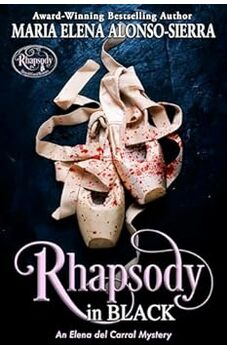
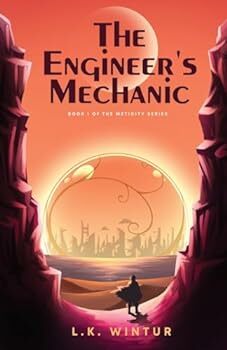
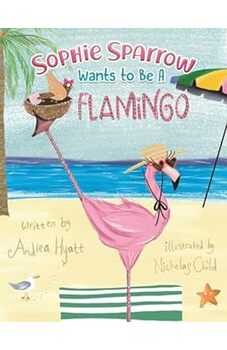

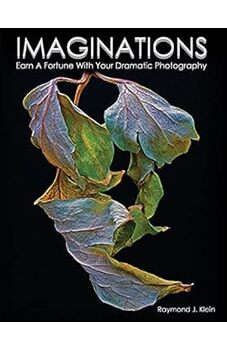
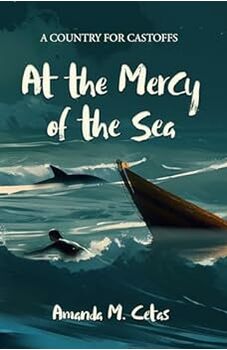
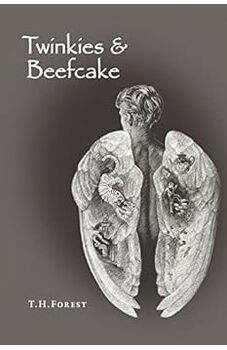



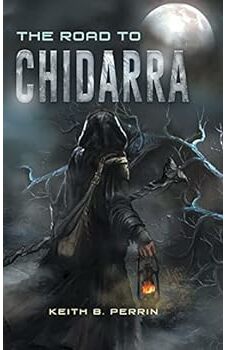
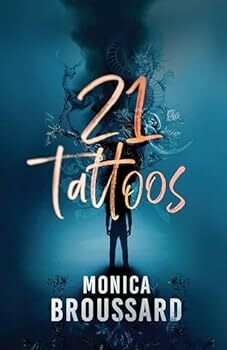



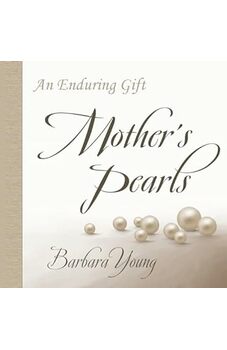




 This author participates in the Readers' Favorite Free Book Program, which is open to all readers and is completely free. The author will provide you with a free copy of their book in exchange for an honest review. You and the author will discuss what sites you will post your review to and what kind of copy of the book you would like to receive (eBook, PDF, Word, paperback, etc.). To begin, click the purple email icon to send this author a private email.
This author participates in the Readers' Favorite Free Book Program, which is open to all readers and is completely free. The author will provide you with a free copy of their book in exchange for an honest review. You and the author will discuss what sites you will post your review to and what kind of copy of the book you would like to receive (eBook, PDF, Word, paperback, etc.). To begin, click the purple email icon to send this author a private email.
Reviewed by Anne Boling for Readers' Favorite
The Last Queen is the fictionalization of the life of Juana, the daughter of Ferdinand and Isabella, the “last Queen of Spanish blood to inherit her country’s throne.” Many myths have spread throughout the sands of time. Who was the woman behind the myths? Was she insane?
The setting is 1492, the year Columbus discovered the New World. She and her sisters are married to strengthen the throne. It is fortunate that Juana comes to love the man she marries. Perhaps it is her upbringing that form her strength and determination to fight for the throne and the unity of Spain, risking all that she holds dear.
C.W. Gortner brings Juana back to life. He introduces her to his readers. It is obvious that Gortner has well researched the life of Juana. He brings passion and expertise to this beautifully written story. While I know in my head that this is a fictional tale, my heart tells me that Gortner has written with much more truth than fiction. The Last Queen is an amazing story, and it is sure to make a best seller list. Fans of historical fiction will greatly enjoy The Last Queen.
I've now read the new version of this novel, which was sold to Random House in a two-book deal. Not only has the author finally gotten recognition for his efforts, but the new scenes and edit have refined and smoothed whatever rough edges this book once had. C.W. Gortner writes with eloquence and style; he turns his masterful pen to Renaissance Spain and conjures a diverse and complex land recently united by the Catholic monarchs, Isabel and Fernando. Spain is unfortunately not explored nearly as much as it should be by historical fiction novelists and Gortner brings it to life through the eyes of Juana la Loca, arguably the most beautiful and certainly most enigmatic of the Catholic monarchs' four daughters. Known to history as the Mad Queen and the older sister of Katherine of Aragon (Henry VIII's first wife) Juana has often been neglected as a figure in her own right. This novel restores her to her proper place - and what a dramatic place it is! Through vivid prose and an intense feeling for emotional characterization, Juana tells us her story - from her arranged and ultimately tormenting marriage to the Hapsburg Emperor's son Philip to their lethal struggle for the throne of Spain, which Juana inherits through tragedy. Incredible characters like Queen Isabel, wily Fernando of Aragon, as well Henry VII of England and Louis of France, make memorable appearances; Isabel in particular is a compelling combination of steel and sacrifice. But it is the courageous, amazingly young, and very human Juana who dominates the story, and the secrets she reveals are startling and unexpected. A sumptuous feast for the senses, this novel exemplifies the best of historical fiction - accurate and yet daring in its approach, respectful of the facts but focused on the human elements; you are captured by Juana's story until the very end, when you find yourself both awestruck and haunted by this queen who truly has been forgotten by most of the world until now.
The Tudors of England have enjoyed surging popularity in the past year, with a hit Showtime series and Philippa Gregory's acclaimed historical novel The Other Boleyn Girl, which was adapted to the big screen last winter. But few people know about Juana of Spain, also known as Juana la Loca, sister to Henry VIII's first wife Katherine of Aragon. In The Last Queen, C.W. Gortner proves that Juana's story is just as complex and captivating as that of her more famous younger sister.
The novel opens in 1492 when Juana is 13 years old. Her parents, Ferdinand and Isabella, have just conquered Grananda, ending 300 years of Moorish rule. Juana has never known life apart from the crusades and her parents' all-consuming dedication to uniting Spain and expelling the Moors. Ferdinand and Isabella passed their passion and fierce nationalism on to at least one of their four daughters: from childhood, Juana harbored an intense loyalty to her native land.
In 15th century Europe, royal children were betrothed in marriage not for love, but to facilitate political alliances. Juana was no exception. Her parents arranged a marriage between Juana and Philip the Fair, Hapsburg heir and archduke of Flanders.
Initially resistant to the marriage, Juana eventually fell in love with Philip and resigned herself to life in Flanders, outside her beloved Spain. But everything changed when, through a succession of family deaths, Juana became direct heir to the Spanish throne; she suddenly saw an ambitious, calculating, even cruel side of her dashing husband.
Chaos ensued. The life Juana had built in Flanders crumbled as everyone around her scrambled to exploit any and every possible political advantage. Her husband was influenced by deceitful, unscrupulous advisors. Her parents put political objectives before family. Church officials were corrupt, and often the most politically ambitious men around. The Spanish nobles who had long resented the power held by Ferdinand and Isabella were determined to wrest it from Juana as soon as the opportunity presented itself.
Juana was anguished by the mistrust she felt toward her husband and parents. She missed her children, all of whom she was separated from at various points in time. She was driven by an underlying loyalty to Spain that compelled her to accept unthinkable risk in order to claim her rightful place as its queen.
The diverse cast of characters in this novel - both heroes and villains - is well developed, sure to evoke a mixture of compassion, admiration, and ire in the reader. Historical figures come alive, and relationships and alliances between various 15th century European monarchs are illuminated.
Gortner sets his story firmly in its historical context, giving the reader a clear sense of a time when adultery was a given and wives were expected to turn their heads, political ambition was paramount, and strong independent women risked being branded as crazy (in Spanish, loca.)
The plot pacing is perfect. Gortner covers considerable territory, without rushing or overwhelming his reader, providing just the right amount of historical background, and fleshing it out with romance, family drama and political intrigue.
Outside of Spain, she might be a relatively obscure historical figure, but by the end of this novel, Juana la Loca seems incredibly real, a person full of conflicting passions and loyalties with a compelling story to tell.
I respect a person's right to disagree with me regarding anything and everything and I never put forth an argument; however, I find it incredibly frustrating when people presume to know the real person behind the persona, as if though they were lifelong friends. No matter how erudite a person is regarding a particular historical figure, no one can be so bold as to profess knowing first hand their true psychological makeup, especially when the person in question died four and half centuries ago. Let's be honest, no one in this world really knows anyone else, and so why take on this personal familiarity with someone whom you never even met? J.N.W. Bos "Joan" states "...but this autobiography just didn't feel like the real Juana La Loca." Whom does he suppose the real Juana La Loca was? Is he in possession of her memoirs? Confessions? Firstly, it isn't an autobiography, as Juana of Castile did not write it herself and secondly, even if he meant biography (which, no doubt, he did), it isn't one either. It is a historical novel and I believe it's a well known fact that in this particular genre, writers take certain liberties especially with the protagonists' inner monologues. They simply have no choice but to do so, as no one who knew them personally is alive to offer any first hand insight and if there were, even then it's all conjecture. I found this a fun, exciting and, ultimately, very interesting novel about a historical figure who has pretty much been reduced to a caricature; that of a woman driven to madness by love, passion and power. Here we get a far more well rounded portrait a strong woman who due to her sex was born to be dominated by the men in her life yet whose unfailing love of country and sense of duty nearly tore asunder the world around her. C.W. Gortner might not be the most poetic novelist being published these days, but what he lacks in baroque narrative and philosophical meditations, he more than makes up for with a wonderful sense of time and place, great attention to detail and a story that never once lags in it's intensity and all around appeal. I thought it was a pretty great novel about a woman who deserves to be better known. Whether it's the real Juana of Castile, no one will ever know, but in Mr. Gortner's capable hands, she is a fascinating and multi-faceted person who never lacked for incredible circumstances.
Queen Isabel and King Ferdinand of Spain spent a lifetime winning their country back from the Moors. They finally succeeded in 1492 with the fall of Granada. They would use their four daughters to cement alliances with other European countries in order to obtain peace for themselves and their people.
Juana of Castile is like any other princess of the time, bound up in duty to her family and her country. At sixteen she is married to Philip, the Archduke of Flanders. It is difficult for her to leave the land of her birth but she never gives a thought to being an heir to the Spanish throne. She has both a brother and an older sister who will come before her. As she departs for Flanders she never expects to set foot in Spain again.
At first things in Flanders go well. Philip is handsome and Juana is surprised to find herself happy in her new life. She feels pampered and loved, she gives birth to two children and grows used to the luxury of her life as an Archduchess. It is a far cry from the austerity that the royalty of Spain believes in. In her happiness she allows herself to forget the lessons of her parents and her childhood.
When tragedy strikes repeatedly in Spain, killing in quick succession Juana's brother, older sister and baby nephew, Juana is suddenly the heir to the Spanish throne. She becomes the pawn in every power scheme for the crown and is betrayed by nearly every man that she has ever known and loved. They will stop at nothing. They accuse her of madness in order to show her inability to rule in her own right. The oldest trick in the book, used to wrest power from women down through the ages. She uses all her wits to fight them, will it be enough to save her throne?
With the great number of historical novels written about British royalty lately, I was happy to immerse myself in a story whose history I knew little about. Mr. Gortner does a wonderful job bringing sixteenth century Europe to life and explaining the convoluted politics of the time. I fell in love with Juana of Castile, who was as trapped in her life as any prisoner in a cell, though she fought valiantly to escape it. It is the wrenching story of a strong woman who had to face tremendous obstacles
If you're an Anglophile, or enjoy biographies of queens, you undoubtedly know the story of Catherine of Aragon, Henry VIII's first wife. Catherine's sister was Juana of Castile, known in Spain as Juana la Loca. C.W. Gortner could have called his historical novel, The Last Queen, the lost queen or the forgotten queen. As he says in the outstanding commentary on his website, Juana of Castile, the last queen of Spain, is almost unknown outside of Spain.
It doesn't hurt to listen to his commentary before reading the book. It's well-done, sets the scene, and begins with the comment that history says she went made with love, but history can be wrong. Gortner's story shows a woman with method behind her madness, a tragic, yet triumphant queen who never ruled Spain.
Juana of Castile, daughter of Isabella and Fernando was an Infanta of Spain. When she was thirteen, her parents conquered Granada, seizing it from the Moors, and uniting Spain. Her mother, who was actually the more powerful of her parents, sent her to Flanders to marry Philip, heir to the Hapsburg empire. There, she was a contented wife and mother. However, when her husband became greedy for power, and sought to unite his duchy with France, she refused to be a party to a union with Spain's enemy. As tragedy after tragedy befell her family, this young woman found herself on the path of destiny. Once she was named heir to her mother's throne, she would find herself pitted against the husband she once loved.
Gortner allows Juana to tell her story, looking back at her life. Her visit to her dying grandmother, who had been imprisoned for her madness, foreshadows the last years of her own life. For Juana, in pitting herself against her husband, and other men, became a target for the powerful men who wanted her throne. Her determination to save Spain led to her own downfall, but it kept the country intact for her son.
This book would be an excellent choice for book clubs, with its exploration of a life not really known in this country. It's as fast-paced and riveting as any thriller. The Last Queen is a beautifully written, well-researched story of an unknown queen. Gortner brings her to vivid life, as a lusty, strong-willed woman. Was Juana of Castile, Juana la Loca, really mad? Gortner says history isn't always kind to women. However, he gives voice to a strong woman, and allows her to proclaim her story.
C.W. Gortner's website is www.cwgortner.com
"The Last Queen" by C.W. Gortner is a historical novel which gives a fresh perspective on the life of the enigmatic Queen Juana of Castile. Gortner skillfully weaves together the loose threads of fact and fiction into a rare and subtle tragedy. The story of the daughter of Isabel of Castile and Ferdinand of Aragon, known to history Juana la Loca, is usually told with the emphasis on the passion between Juana and her faithless husband, Philip of Flanders. While Gortner's retelling captures Juana's passionate nature as never before, he also gives a fuller picture of her unique calamity by going beyond her relationship with miscreant Philip to the larger scope of the situations enveloping her. Until reading this book I had not fully grasped the fierceness of the political intrigues, the familial tug-of-war, and the basic struggle of good versus evil which rent Juana's heart, mind and soul. Gortner realistically but sensitively paints her gradual descent into agony as she fights to keep herself from unraveling.
"The Last Queen" combines riveting action with a compassionate portrait of a woman haunted by mental illness. While some fleeting love scenes may not be suitable for very young readers, the gist of the story far surpasses the realm of mere sensuality but takes on the vast range of political, cultural, and spiritual issues that were at stake. Renaissance Europe springs to life in this carefully researched novel, replete with colorful details about the various historical characters. Of course, Juana upstages everyone else. The more wild the incident, the more one can be certain that it truly happened.
Particularly vivid is the portrayal of Queen Isabel; her personality comes through so strongly in the book so that I almost feel that we have met face-to-face. Other than the fact that she was a queen and a matron, Isabel reminds me of the great St. Teresa of Avila, possessing similar determination and luminous faith. Juana's father Ferdinand is a complex character. One cannot help but love him like Juana does, which makes his later actions all the more disturbing.
Outraged in every way, Juana's ordeal encompasses the full gamut of suffering so as to have universal relevance. Hers was a dauntless courage. Her love of her people caused her not to flinch from any sacrifice. I marvel at her tenacity and greatness of heart, qualities shared with her mother Queen Isabel, and with her sister Catherine of Aragon, Queen of England. Juana, like Catherine, had a long battle with the powers of darkness incarnated in a turncoat spouse. Like Catherine, Juana's greatest love became her greatest foe and betrayer. Each queen had to endure disgrace and isolation for refusing to compromise on essentials. It is difficult to say which sister had the most complete immolation. They take their place with other tragic Catholic queens of history, such as Mary Queen of Scots and, of course, Marie-Antoinette.
Gortner's fascinating novel on Juana, the Infanta of Castile, illuminates a character in history I knew very little about. I approached this book originally with trepidation. The cover seems a little second-rate, and I hate to say I judge a book by it's cover, but I will admit that I as a little hesitant. But from the first page the story grips you, and the reader is shocked and horrified to learn how terribly Juana was treated by her family, literally being locked into a tower and parted from from her children. The book isn't a pick-me-up, but it's an illuminating insight into a woman a previously nothing about.
Historical fiction readers are inundated with novels about Anne Boleyn and Elizabeth I. If they do a little digging, they might be able to find something on Mary Queen of Scots or Marie Antoinette. Not that these aren't interesting people, but I was beginning to wonder if there was any other historical figure out there about whom an author might write. C.W. Gortner's "The Last Queen" is the answer to that question.
I knew absolutely nothing about Juana of Castile, so I brought no preconceived notions to the novel. I was able to read it without thinking "this is where that will happen," because I simply wasn't aware of the historical background. Juana of Castile had a life full of betrayal (I'm giving nothing away unless you skip reading the jacket blurb). Her story exemplifies the truth that women were nothing more than political pawns, meant for marrying well and breeding sons. Though Juana was daughter to a powerful Queen, even this did not protect her.
Overall, I found the story quite interesting (thus four stars), though the writing often suffered. The book is written from Juana's point of view, but most of it is not written as a woman of any era would speak, in my opinion and, given that I am female, I think I have a basis for expressing that opinion. I made this determination before I knew C.W. Gortner's gender, but as I read, I guessed that a man had written it. The bad guys were telegraphed so far in advance that I would have had to have been blind to miss the foreshadowing. There were a few surprises, but I would have preferred to find things out when Juana did, not see them coming 50 pages ahead of time.
The Last Queen did serve an important purpose, in that I would like to know more about Juana of Castile. It was surprising and intriguing news to me to hear that two films, and several books, had been released regarding her life, and I will be investigating those quite soon.
Juana of Castile, more commonly known as Juana La Loca, fumes in mid-sixteenth century Spain as she is forced into a betrothal with Philip of Hapsburg. How many political ties of nations were both forged and decimated by the ever-changing vicissitudes of power-hungry monarchs throughout Europe. Outrageous and disgusting, Juana imagines, but she must cooperate with her parents' political plans!
Imagine Juana's surprise at the consuming attraction she feels toward Philip when she first meets him and he meets her. Their initial meeting is so strong that they consummate their unorthodox marriage immediately and only later suffer the formal rite for the people's joyful celebration. So lost is Juana in this glorious, lustful union that she forgets she has been groomed by her parents, Ferdinand and Isabella, to be the proud Queen of Spain.
Little by little, though, we learn that Isabella is the primordial force in ruling Spain and strong, compliant Ferdinand hides an insatiable hunger to rule in his own right. Indeed, Juana's Philip, fatherless from a young age and counseled by a greedy, rapacious cleric, has more in common with Ferdinand than one would ever imagine in the early scenes of this initially romantic story.
Juana carries a secret which occasionally lurks in her daily thoughts. Was her grandmother mad or did she become so after Isabella forced her into seclusion with only basic needs and services provided? Is there a family strain of madness or is this just more of the political machinations driving a constantly threatened monarchy?
By the time Isabella is dying, Philip has matured into a King who will ride the see-saw of politics into what he perceives to be his best shot at expanding his Hapsburg kingdom and protecting it from attack by more powerful kingdoms. The second half of this riveting story is riddled with suspense as the once intense lovers, Philip and Juana, evolve into bitter enemies through a series of planned but stunning moves. Will Philip forge a new treaty of peace with France, Italy or Spain? Watch how Juana appears to compliantly follow her husband but tenaciously plans and implements her own confrontations and loyalties!
Here is where the author truly excels, imagining and presenting a dramatic campaign for power in such a forceful and beguiling manner that the reader is totally unprepared for the conclusion.
C. W. Gortner's physical descriptions of Spain, the Hapsburg empire and the other European lands through which Philip and Juana live and travel are beautiful, even gorgeous, like a lush painting come alive that the reader is privileged to enter. The reader also receives a fine sense of the politics and history of the time which immensely adds to the fascinating plot moving forward to a captivating end!!
The Last Queen: A Novel is a superb, phenomenal read and should be on the top ten fiction bestsellers across the country! Here's to hoping C. W. Gortner will keep writing such masterful, literary historical fiction!!!
Author C.W. Gortner's chilling novel based on the life of Juana, Infanta of Castile relays a story of a Princess who literally was locked in a tower, betrayed by her family, separated from her children and pushed into the darkest shadows of history. Unfortunately, there is no Disney ending with a dramatic rescue and true love.
Juana is surrounded by men who resent her mother's iron will and ability to rule, and who do not believe women, even royal ones, to be of any worth beyond bedding, breeding, and bringing access to territories. In this environment, young willful Juana is married to Philip the Fair of Hapsburg, a political alliance forged by her parents in hope of strengthening their hold on Naples against the French. Philip may have been fair to the eye, but he was completely lacking in the judicial sense. Juana and Philip become adversaries trapped in a marriage and warring over the rule of Spain. Power hungry Philip and his manipulative "advisors" inflict years of havoc on Juana, hoping to break her spirit and force her to submit to their will. Juana fights back, maintains her sense of purpose, and keeps her spirit alive despite their best efforts. She nearly wins this battle of wills and politics, but is ultimately betrayed by yet another man she loved dearly and the result is that she is locked up for life.
The unending suspense about Juana's safety and future add to the allure of this novel about a forgotten and imprisoned Queen. I agree with some reviewers that Gortner could have been more creative in writing the love story and relaying Juana's on-going desperation. Had he done so, I would have given this book five stars. I personally found the description of Philip's physical prowess uninventive, Juana's choices frustrating (she does not pick the most willful or heroic paths, but does offer resistance - you just want her to fight harder!), and in the end found the desperation to be less engaging than it was 200 pages before. But such is a book about a woman whose freedom was stolen from her! Juana's story is compelling in and of itself simply because it happened. Thank you, Mr. Gortner, for putting it on paper and basing a novel on it.
Gortner presents Juana as lucid and alert through this period of her life and suggests the "Loca" label was simply propaganda. It leaves one wondering, "Was Juana mad?" She certainly endured cruelty and conditions that have broke the minds of others. Yet, Juana's family lineage is also full of other monarchs whose insanity is well documented, even if hers is not. The possibility that she may have had a medical condition throughout her life exists, and it would have certainly been exacerbated by the cruelties inflicted on her.
In telling the story of the legendary Juana the Mad and her husband, Philip the Fair, Christopher Gortner has brilliantly recreated fifteenth century Spain at the height of its grandeur. As the story opens, thirteen-year old Juana, the future Queen of Spain, witnesses her parents, the warrior monarchs Isabella and Ferdinand expel the Moors and unite Castile and Aragon. Soon afterwards she reaches marriageable age and is betrothed against her will to the Hapsburg prince Philip the Fair. From there, The Last Queen moves between the courts of Flanders and Spain to unfold an intricate tale of royal intrigue laced with love and cruelty. But while Juana may flee one court for the other, she cannot flee her destiny. Gortner writes with masterful skill of the love-and-hate relationship that produced the Emperor Charles V and Juana's grandson, Phillip II of Spain, and in doing so, brings to life a memorable queen.
I usually avoid historical novels; too many of them turn out to be thinly disguised romance novels or exaggerated accounts disguised as history. Further, they are often poorly written.
That said, I have become a new fan of at least one historical novelist, C.W. Gortner after reading his recently published "The Last Queen," Juana of Spain, also known as Juana La Loca. A friend, who knows my bias, insisted I at least look at her copy. With the first paragraph, starting with, "Midnight has become my favorite hour," I was hooked. Not only is Gortner an exceptionaly gifted writer, he obviously has meticuously researched his subject. He knows his history, not only of Spain, but the machinations and betrayals of royalty which led up to Juanas's imprisonment for madness. Her life did indeed include tragedy and could have led to madness but we are left with an interesting question as to how mad she actually was. Gortner has brilliantly connected actual dots of history into an absorbing and believable story of an unforgettable woman.
I found the book to be a page turner, couldn't put it down, and actually finished it at 2:30AM.I now look forward to his forthcoming fictionalized history of another, often misunderstood,fascinating woman, Catherine d'Medici.
First, two disclaimers: I know the author and I don't read historical novels. I write this because if I did not personally know Christopher, I would have never picked up this book. Even given that, it took me almost a year to start it after I bought the book. I am so happy that I did read it.
It was a well written, incredible story. As a woman with a twenty-first century feminist perspective, I kept rooting for Juana to escape her situations but within the constraints of historical accuracy that was impossible. The character development of the "Mad Queen" was deft and very believable. And like many of the reviewers of this book, I am very happy to not have been a fifteenth century princess.

